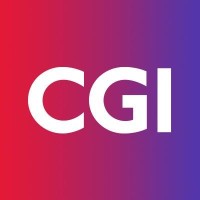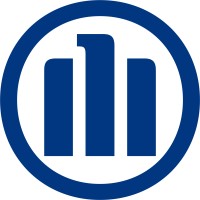Company Cyber Security Posture
NANA
NA Company Details
NA
NA
NA
NA
NA
NA
Scan still pending
NA
NA
Between 200 and 800
This score is AI-generated and less favored by cyber insurers, who prefer the TPRM score.
 NA Global Score
NA Global Score.png)

Company Scoring based on AI Models
| Model Name | Date | Description | Current Score Difference | Score |
|---|---|---|---|---|
| AVERAGE-Industry | 03-12-2025 | This score represents the average cybersecurity rating of companies already scanned within the same industry. It provides a benchmark to compare an individual company's security posture against its industry peers. | N/A | Between 200 and 800 |
Company Cyber Security News & History
| Entity | Type | Severity | Impact | Seen | Url ID | Details | View |
|---|
Company Subsidiaries

NA
Access Data Using Our API

Get company history
.png)
NA Cyber Security News
General Dynamics IT: Leading the Defense Sector's Digital Transformation with AI and Cybersecurity
The global defense sector is undergoing a profound digital transformation, driven by the need to modernize infrastructure, ...
Everfox and General Dynamics Information Technology Collaborate to Deliver Insider Threat Solution
Everfox announced its collaboration with General Dynamics Information Technology (GDIT) to deliver a solution addressing insider threat risks.
General Dynamics Lands $396M Contract to Modernize Special Forces with AI and Cloud Tech
GDIT to deliver next-gen AI and cloud solutions for Special Operations Forces. New contract expands military tech capabilities across global ...
GDIT Announces Strategic Collaboration Agreement with AWS
PRNewswire/ -- General Dynamics Information Technology (GDIT), a business unit of General Dynamics, announced today that it has expanded its ...
GDIT’s Matthew McFadden: Unified Visibility, XDR Platforms Key to Agency Cybersecurity
GDIT official Matthew McFadden said agencies should have unified visibility and adopt XDR platforms to strengthen their cybersecurity ...
David Carroll Joins GDIT as Vice President of Cyber Capability, Engineering, and Strategy
David Carroll has started a new role as the Vice President of Cyber Capability, Engineering, and Strategy at General Dynamics Information ...
Global tech company on track to bring $3.5B economic boon to Bossier, Louisiana
The economic impact numbers associated with General Dynamics Information Technology are big and getting bigger.
John Sahlin Appointed GDIT VP of Cyber Pursuit
John Sahlin, a senior technology executive, announced on LinkedIn Friday that he has been appointed vice president of cyber pursuit at ...
General Dynamics Land Systems Announces New Software Partnerships
“The outcome on the battlefield increasingly is decided by which side has more powerful software,” said Dave Paddock, president of General ...

NA Similar Companies

CGI
Insights you can act on to achieve trusted outcomes. We are insights-driven and outcomes-focused to help accelerate returns on your investments. Across 21 industry sectors and 400 locations worldwide, we provide comprehensive, scalable and sustainable IT and business consulting services that are in

iSoftStone
iSoftStone is a global IT service and consulting company‚ÄØthat creates value and drives success through technology solutions, service excellence, and digital innovation. We specialize in web and application development, software testing and support, data and content management, digital experience,

Allianz Technology
With its headquarters in Munich, Germany, Allianz Technology is Allianz's global IT service provider and delivers IT solutions that drive the group's digitalization. With more than 13,000 employees in more than 20 countries around the world, Allianz Technology is tasked to run, optimize, transform,

HARMAN Digital Transformation Solutions
HARMAN Digital Transformation Solutions is dedicated in blending the physical and digital to make technology more dynamic in order to serve the ever-changing human needs. Our team of over 7,000 employees, spread across 12 countries in 45+ locations, with their expertise across hardware, software, an

Hitachi
Since its founding in 1910, Hitachi has responded to the expectations of society and its customers through technology and innovation. Our mission is to “Contribute to society through the development of superior, original technology and products.” Over the past 100+ years this commitment has led us t

Experis Brasil
Talent and solutions to drive innovation. When it comes to IT, having the right talent and focus means you can harness the power of technology to make smarter, faster decisions; connect more strongly with your customers; and drive innovation in your marketplace. At Experis IT, our prowess in pro

Frequently Asked Questions
Explore insights on cybersecurity incidents, risk posture, and Rankiteo's assessments.
NA CyberSecurity History Information
How many cyber incidents has NA faced?
Total Incidents: According to Rankiteo, NA has faced 0 incidents in the past.
What types of cybersecurity incidents have occurred at NA?
Incident Types: The types of cybersecurity incidents that have occurred include .
Additional Questions
What Do We Measure?
















Every week, Rankiteo analyzes billions of signals to give organizations a sharper, faster view of emerging risks. With deeper, more actionable intelligence at their fingertips, security teams can outpace threat actors, respond instantly to Zero-Day attacks, and dramatically shrink their risk exposure window.
These are some of the factors we use to calculate the overall score:
Identify exposed access points, detect misconfigured SSL certificates, and uncover vulnerabilities across the network infrastructure.
Gain visibility into the software components used within an organization to detect vulnerabilities, manage risk, and ensure supply chain security.
Monitor and manage all IT assets and their configurations to ensure accurate, real-time visibility across the company's technology environment.
Leverage real-time insights on active threats, malware campaigns, and emerging vulnerabilities to proactively defend against evolving cyberattacks.




